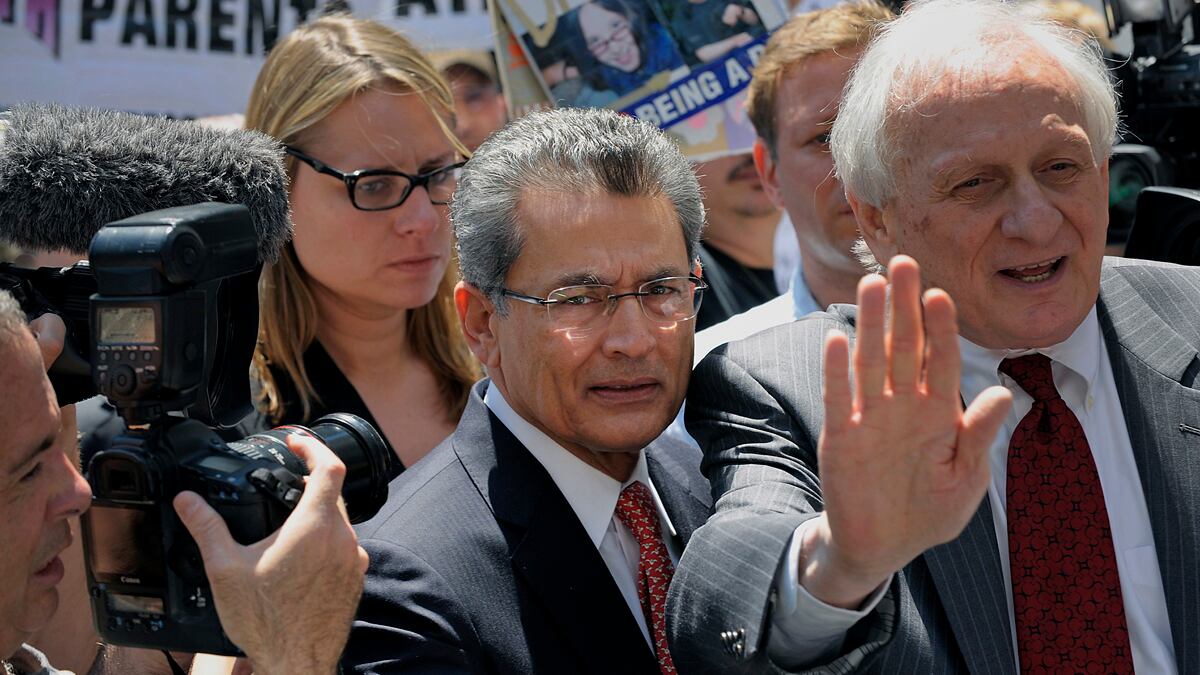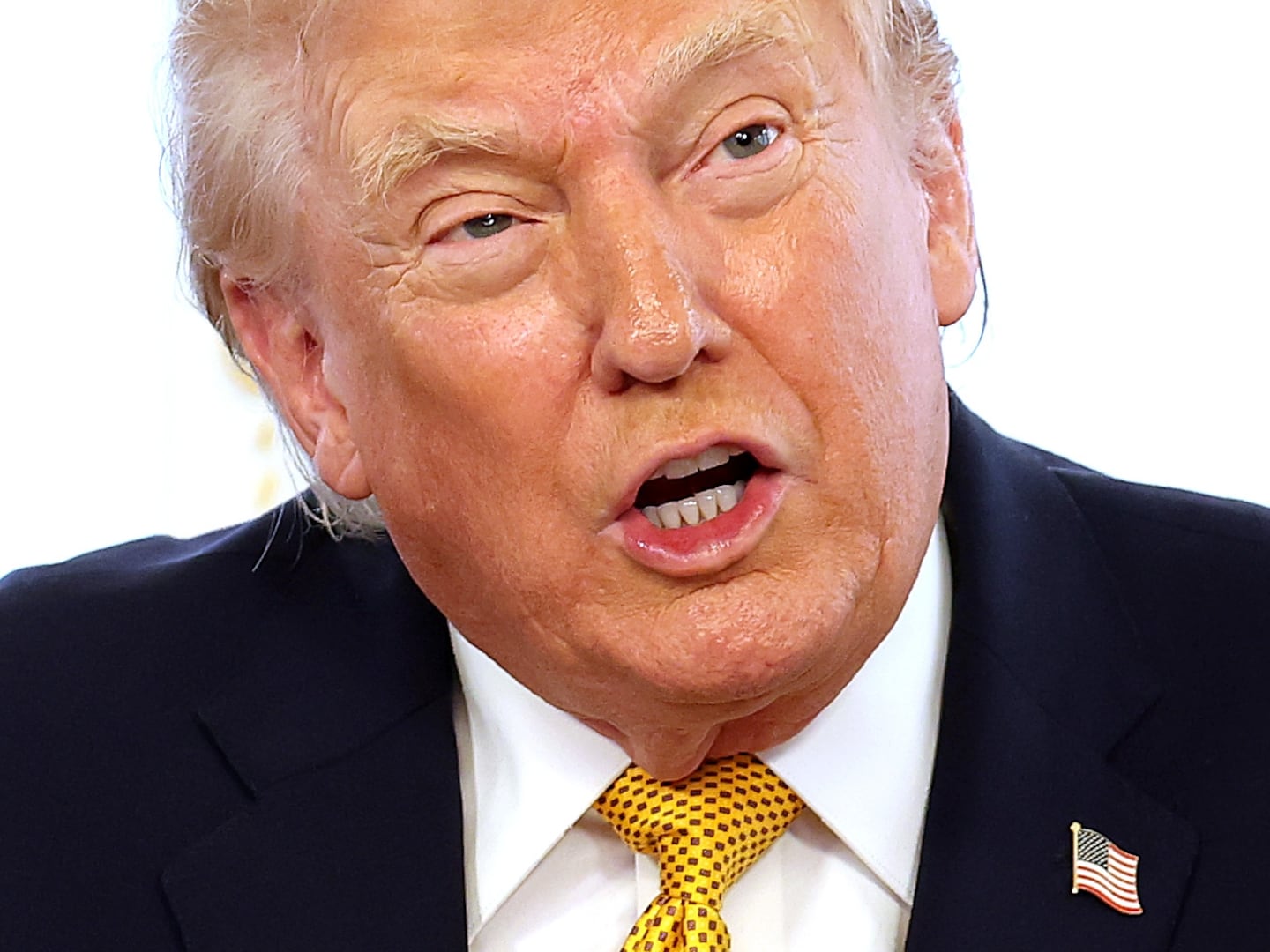Finding former McKinsey & Co. global managing partner Rajat Gupta guilty of insider trading took so little time Friday that the jury did not even stick around for a free lunch at U.S. District Court in Manhattan.
Beginning their deliberations just before midday Thursday, the jury of eight women and four men considered the charges against Gupta for less than a full day before reaching a split verdict of guilty on four counts, including conspiracy, and not guilty on two of the five securities-fraud charges.
They found Gupta guilty of leaking confidential information he learned as a Goldman Sachs board member on Sept. 23, 2008, then phoning hedge-fund operator Raj Rajaratnam, who within a minute of getting the tip from Gupta began buying $43 million in Goldman stock.
Noting that the jury in the Rajaratnam trial took 12 days to find him guilty after a prosecution case full of “smoking hot evidence,” Columbia University Law Professor John Coffee said he was a little surprised by the swiftness of the split verdict against Gupta since much of the case was circumstantial evidence, rather than direct testimony from co-conspirators. Still, there was a wiretap tape of a conversation between Rajaratnam and one of his co-conspirators in which he claimed to have information from a Goldman Sachs board member.
“Juries like to appear to be fair, and acquitting on at least one count suggests that they did consider all the facts and were not just rushing to convict as much as possible. I think the desire to be perceived as fair often leads juries to convict on less than all counts,” Coffee told The Daily Beast. “They know at some level that he is likely to get 10 years or more and I do not know how much they want to pile it on.”
Gupta, regarded as the ultimate trustworthy and sagacious insider in international business when he was named to the Goldman Sachs board, faces 20 years in prison on each of the three securities charges and five years on the conspiracy count. U.S. District Judge Jed Rakoff allowed Gupta to remain free on bail, pending sentencing scheduled for Oct. 18.
The guilty verdict was a big win for U.S. Attorney Preet Bharara’s office, which has used extensive wiretaps in an investigation begun in 2007 to prosecute insider trading. So far more than 60 people have been convicted. Bharara said in a statement, “Rajat Gupta once stood at the apex of the international business community. Today, he stands convicted of securities fraud. He achieved remarkable success and stature, but he threw it all away.”

Veteran defense attorney Gerald Lefcourt told The Daily Beast that Gupta “is the highest level in the American—indeed, in the international—business world, with the magnitude of that kind of career, who has ever been brought to a dock for criminal prosecution for insider trading.”
That point was brought home during nearly three days of testimony for the prosecution by Goldman Sachs chairman and CEO Lloyd Blankfein, a Harvard-trained lawyer. Blankfein buried Gupta by portraying the severity of Gupta’s betrayal of his fiduciary duties as a director of the investment bank. After the verdict, Goldman Sachs issued this one-line statement: “We are very disappointed that Mr. Gupta breached his duties as a director and violated the trust of our shareholders and the firm.”
McKinsey & Co., which also has seen former partner Anil Kumar convicted of insider trading and flipped as a star witness against Gupta, had no comment about how the case affects the firm’s reputation for trustworthiness.
After Gupta was acquitted on the securities fraud count accusing him of leaking information he learned as a board member of Procter & Gamble, that company had no comment beyond recycling Gupta’s statement as he resigned from the Procter & Gamble board in March 2011. Then, Gupta “repeatedly assured P&G that he had not violated any rules or inappropriately communicated P&G confidential information.”
Professor Coffee rates the Gupta crime this way: “Symbolically, you can’t get a more egregious case. It is like catching a Supreme Court justice leaking the results of a decision breaking up IBM.”
The defense argument that Gupta—a philanthropist, trusted confidante of the global elite, and a man worth nearly $100 million—would never allow greed to jeopardize his sterling reputation was not credible.
Jurors understood the argument by Assistant U.S. Attorneys Reed Brodsky and Richard Tarlowe that Gupta stood to gain as a multimillion-dollar investor and officer of a fund run by Raj Rajaratnam’s Galleon Group.
After handing up the verdict to the judge, jury foreman Rich Lepkowski told reporters how he viewed Gupta’s life story: “Here’s a man who came to this country and was a wonderful example of the American dream … We wanted to believe that the allegations weren’t true, but at the end of the day the evidence was just overwhelming.”
As Ronnie Sesso, a juror who is a youth advocate at the Administration for Children’s Services in Manhattan, told The New York Times, “What did Mr. Gupta get by giving Raj this information? A need for greed.”
Gupta remained grim faced after the verdict, while his wife and four daughters sobbed and tried to comfort one another. Outside court, Gupta’s chief defense lawyer, Gary Naftalis, vowed an appeal and continued to insist his client was innocent.
Both Lefcourt and Coffee agree that Gupta may have caught a break when his case was assigned to Judge Rakoff, a critic of federal sentencing guidelines. Rakoff is not believed to favor unrealistically long sentences, such as the 150 years given to Ponzi king Bernard Madoff or the 110-year term just given to swindler R. Allen Stanford Thursday by a federal judge in Texas.
In 2009 Rakoff sentenced former lawyer Marc Dreier to 20 years in prison for swindling investors of more than $700 million, even though prosecutors asked for a 145-year sentence.
How much money was allegedly made is part of the determination of what kind of sentence should be applied. In Rajaratnam’s case, he was found guilty of a scheme that generated more than $50 million in profits and sentenced to 11 years in federal prison in Butner, N.C.
Of Rajaratnam’s more than $63 million in profits or avoided losses, perhaps only one-quarter of that may be attributable to actions by Gupta. Yet, as the Gupta defense contended, Gupta ended up losing $10 million with Galleon. The evidence did not include any profits directly attributed to Gupta accounts from the trading done by Rajaratnam on his insider tips.
On that basis, Lefcourt is predicting a relatively light sentence for the 63-year-old Gupta. “He is really lucky he has a judge who has a realistic view of sentencing,” says Lefcourt. I don’t think it is going to be serious time. He did not earn a penny. I don’t think that is who he is: tipping to make a few quick bucks. You know the guy (Rajaratnam) who made the money is doing 11 years, but was doing it (insider trading) systemically … I do not know there is any evidence that Rajat Gupta has spent his career doing things like this.”
Professor Coffee, who has co-taught a course on securities law—“Black Letter Law/ White Collar Crime”—-for more than two decades with Judge Rakoff at Columbia, predicts Gupta could be sentenced to 10 years.
“I can assure you Judge Rakoff thinks insider trading is a serious crime,” says Coffee. “I can’t tell you what sentence he will give, but he would never give the 150-year sentence that Bernie Madoff got. He would give a sentence commensurate with the crime.”






